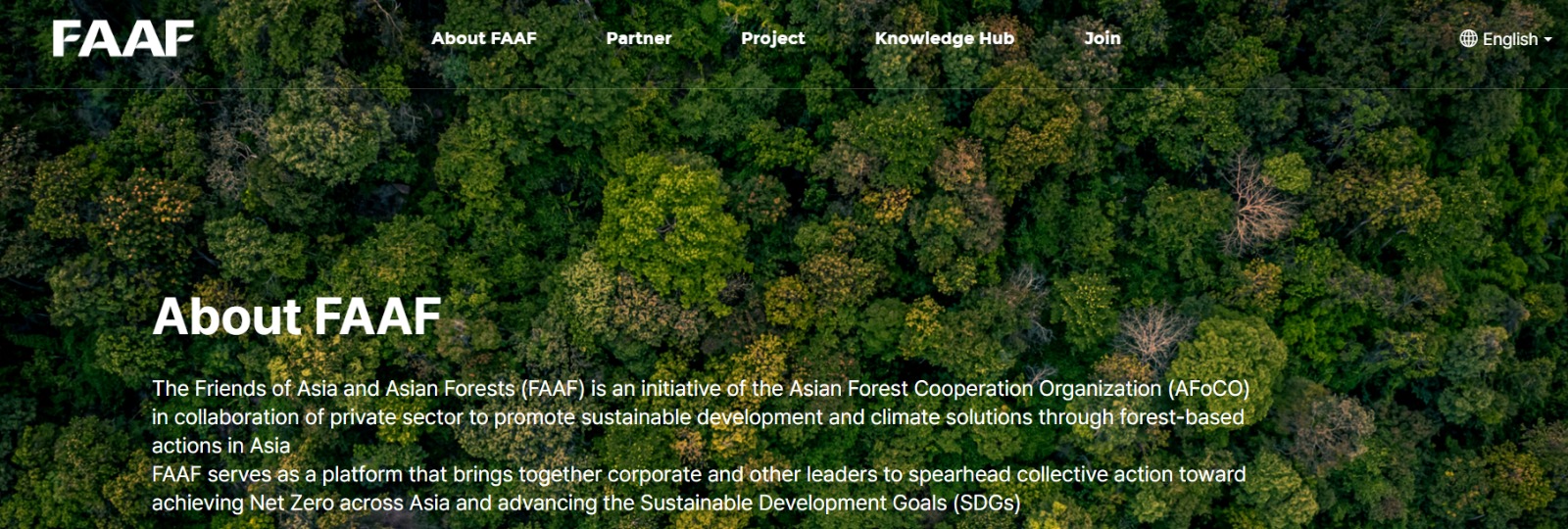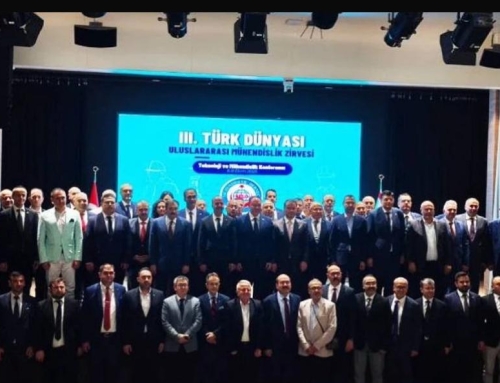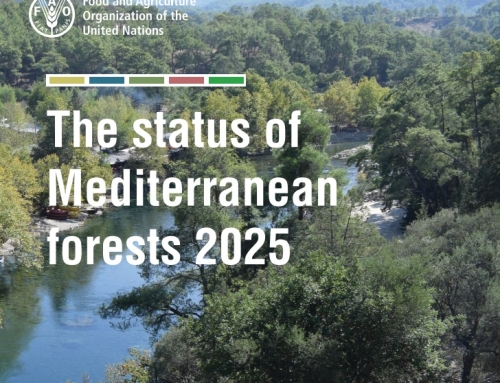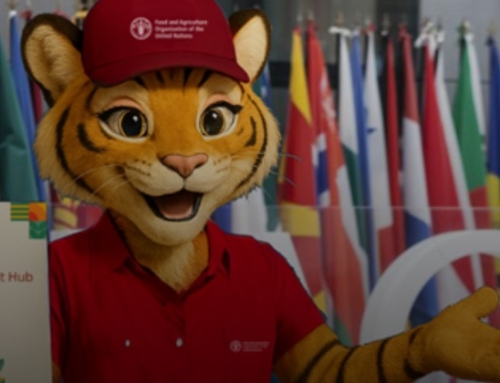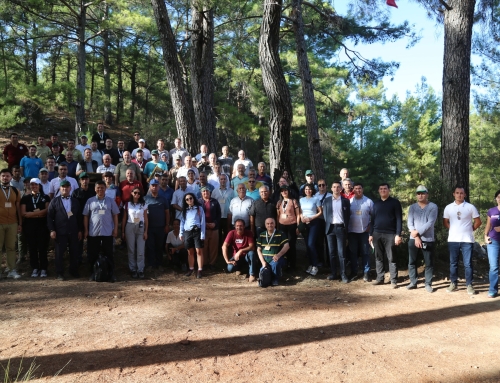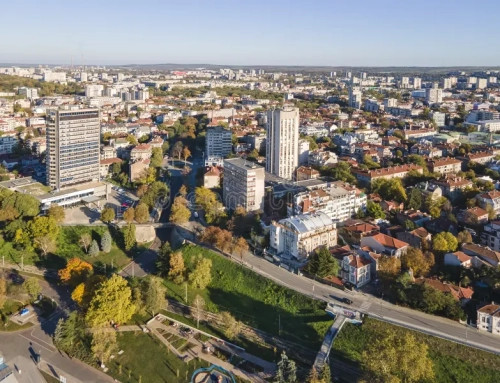Ormancılık, iklim finansmanı ve gıda güvenliği ekseninde Asya kıtasının en önemli bölgesel platformlarından biri olan 3rd Friends of Asia and Asian Forests (FAAF) Forum, 27–28 Ekim 2025 (Pazartesi–Salı) tarihlerinde Seul, Kore Cumhuriyeti’nde gerçekleştirilecek.
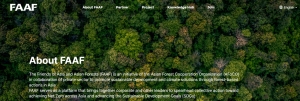
GÖNDER Başkanı ve Birleşmiş Milletler Orman Forumu (UNFF) Başkanı İsmail Belen, forumun ikinci gününde FAO tarafından düzenlenecek “Forests and Foods” başlıklı teknik oturumda açılış konuşmacısı (Keynote Speaker) olarak yer alacak.
Forumun teması bu yıl “From Carbon to Co-Benefits: Rethinking Forest Investment in Asia” olarak belirlendi.
Etkinliğin ev sahibi, merkezi Seul’de bulunan Asian Forest Cooperation Organization (AFoCO). AFoCO, Asya ülkeleri arasında sürdürülebilir orman yönetimi, iklim değişikliğine uyum ve doğa temelli çözümler alanlarında işbirliğini güçlendiren bir hükümetler arası örgüt. Forumun amacı, orman yatırımlarını karbon projelerinin ötesine taşıyarak, biyolojik çeşitlilik, toplum refahı ve sürdürülebilir arazi kullanımı gibi çok boyutlu faydalara (co-benefits) odaklanmak. Ayrıca forum kapsamında, FAAF Fund adlı yeni bir bölgesel finans mekanizmasının temellerinin atılması planlanıyor.
https://afocosec.org/
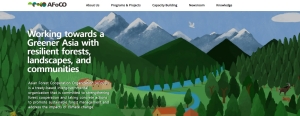
Üçüncü FAAF Forumu, birçok uluslararası kuruluşun işbirliğiyle düzenleniyor.
- FAO – Birleşmiş Milletler Gıda ve Tarım Örgütü, forumun ikinci günü olan 28 Ekim Salı günü “Healthy Forests for Foods: Nourishing People, Sustaining the Planet” başlıklı teknik oturumu düzenleyecek.
- UNFF – United Nations Forum on Forests, küresel ormancılık politikalarını yönlendiren BM platformu olarak forumun uluslararası görünürlüğünü artırıyor.
- IUCN – International Union for Conservation of Nature, biyoçeşitlilik ve doğa koruma politikalarına ilişkin deneyim paylaşacak.
- World Economic Forum (WEF), kamu–özel sektör ortaklıkları (PPP) ekseninde oturumlar yürütecek.
- Asian Development Bank (ADB) ve Artha Networks, “Blended finance” temalı oturumlarda orman ve arazi restorasyonuna yönelik finansal modelleri tanıtacak.
27 Ekim Pazartesi günü DMC Hall, KBIZ DMC Tower, Mapo-gu, Seul adresinde gerçekleştirilecek oturumlarda New Paradigm Institute Başkanı Kook-Hyun Moon, Kore Orman Servisi (KFS) temsilcileri, IUCN ve WEF yöneticileri konuşacak.
“Blended Finance for Forest and Landscape Restoration” başlıklı oturumlarda AFoCO, ADB, Artha Networks, Mars ve Mutual Value Labs kurumları yer alacak.
28 Ekim Salı günü FAO’nun organize ettiği teknik oturumun moderatörlüğünü FAO Forestry Officer (Food Security) Sooyeon Laura Jin yürütecek ([email protected], +39 366 724 8170). Program kapsamında FAO Kore Temsilcisi’nin açılış konuşmasının ardından İsmail Belen keynote konuşmasını gerçekleştirecek. CIFOR-ICRAF, IFAD ve ADB temsilcileri orman-gıda ilişkisine dair sunumlar yapacak. FAO-SEC (Ankara) Ormancılık Sorumlusu Ekrem Yazıcı, FEDECOVERA (Guatemala) ve FAO-RAP (Papua Yeni Gine) de bölgesel örnekleri paylaşacak.
Türkiye, sürdürülebilir orman yönetimi ve kırsal kalkınma alanında güçlü bir deneyime sahip. İsmail Belen’in hem GÖNDER Başkanı hem de UNFF Başkanı olarak bu platformda yer alması, Türkiye’nin uluslararası ormancılık diplomasisi, orman-gıda sistemleri ve iklim eylemi konularındaki etkinliğini pekiştiriyor. Bu katılım ayrıca Türkiye’nin FAO, AFoCO ve UNFF çerçevesinde yürüttüğü çok taraflı işbirliklerini güçlendirecek ve “Healthy Forests, Healthy People, Healthy Planet” vizyonuna katkı sağlayacak.
İsmail Belen, 25 Ekim Cumartesi günü saat 21.00’de Ankara’dan hareket ederek 22.15’te İstanbul’a varacak. 26 Ekim Pazar günü saat 01.45’te İstanbul’dan kalkan uçakla Seul’e gidecek ve yerel saatle 17.40’ta varacak. 30 Ekim Perşembe günü saat 00.10’da Seul’den ayrılacak, 05.55’te İstanbul’a inecek ve 08.00’de Ankara uçağına geçerek 09.10’da Ankara’ya ulaşacak. Kore saati (KST = UTC+9), Türkiye saatinden altı saat ileride.
İlgili temas noktaları:
FAO Forestry Division (Roma) – Sooyeon Laura Jin, Forestry Officer (Food Security), [email protected],
FAO-SEC (Ankara) – İffet Cengiz, Forestry Officer, FAO Subregional Office for Central Asia
AFoCO Secretariat (Seul) – Sunpil Jin, Vice Executive Director, afocosec.org
FAAF Forumu, Asya’da karbonun ötesine geçerek insan ve doğa merkezli orman yatırımlarını teşvik eden öncü bir platform olacak. Türkiye’nin bu forumdaki aktif temsili, hem bölgesel işbirliğine hem de küresel ormancılık gündemine katkı sağlayacak. GÖNDER, bu etkinliğin Türkiye ormancılığına ve uluslararası orman-gıda politikalarına yeni bir ivme kazandırmasını bekliyor.
Keynote Remarks by Ismail Belen
Chair of the UNFF Bureau
“Healthy Forests for Foods: Nourishing People, Sustaining the Planet”
FAO Technical Session – 3rd Friends of Asia and Asian Forests (FAAF) Forum
Seoul, Republic of Korea – Tuesday, 28 October 2025
Excellencies, Distinguished Delegates, Colleagues, and Friends,
It is a great honour to address this important session at the 3rd Friends of Asia and Asian Forests Forum, organized by AFoCO in collaboration with FAO and many valued partners.
Allow me to convey warm greetings from the United Nations Forum on Forests (UNFF).
As Chair of the UNFF Bureau, I am pleased to share the Forum’s vision and ongoing efforts to advance sustainable forest management and to strengthen the contribution of forests to the Sustainable Development Goals.
The United Nations Strategic Plan for Forests 2030 (UNSPF 2030) serves as our guiding framework. It envisions a world where all types of forests are sustainably managed, their multiple benefits are recognized, and their contributions to people, the environment, and the global economy are fully realized.
UNFF’s Mandate and Partnerships
The UN Forum on Forests is a functional body of the UN Economic and Social Council. It unites 197 member states and a wide range of partner organizations to promote sustainable forest management, coordinate forest-related policies, and enhance international cooperation.
Our mission is to serve as a global platform that connects forest-related actions across institutions and regions, and to ensure that global commitments are effectively translated into regional and national realities.
From this perspective, initiatives such as AFoCO’s regional cooperation platform, whose plenary sessions are held here in Seoul on Monday and Tuesday, 27–28 October 2025, play a critical role in realizing the UNFF’s global objectives on the ground.
The collaboration between UNFF, FAO, and AFoCO demonstrates the power of aligning global policy frameworks with regional implementation mechanisms.
Forests as the Foundation of Food Security
Forests are the backbone of ecosystems that sustain human life — from conserving biodiversity and storing carbon to regulating water cycles and providing essential foods.
More than one billion people globally depend directly on forests for their livelihoods and nutrition.
In Asia, forests are integral to local diets and rural economies. They offer wild fruits, nuts, mushrooms, honey, medicinal plants, and other non-wood forest products (NWFPs) that nourish both people and traditions.
Healthy forests also support agriculture by maintaining soil fertility, stabilizing microclimates, and ensuring the water balance required for crop production.
Experience from Türkiye: Forests and Livelihoods
Let me share an example from Türkiye, where forests are closely linked to food security and rural livelihoods.
According to the Türkiye Non-Wood Forest Products Report (2020), prepared through a collaboration between FAO, the Chamber of Forest Engineers of Türkiye (OMO), and the General Directorate of Forestry, the total economic value of non-wood forest products was estimated at 880 million US dollars.
This income provides direct economic benefits to approximately 25,000 forest villagers and indirectly supports around half a million people. In 2019 alone, the revenue generated by forest villagers from these products reached 123 million US dollars.
Products such as laurel, chestnut, pine honey, mushrooms, and medicinal and aromatic plants are vital not only for income generation but also for food security, nutrition, and cultural heritage.
However, unsustainable harvesting and limited value addition remain challenges. Improving management practices and market access is therefore essential to unlock the full potential of these valuable resources.
Regional Cooperation: AFoCO and OMO Partnership
In this context, the cooperation between AFoCO and OMO represents an excellent model of regional collaboration.
OMO is one of AFoCO’s official partner organizations, contributing to professional capacity building and the exchange of good practices among Asian forestry experts.
Recently, OMO prepared the Regional Guidelines for Value Chain Development and Market Access for Non-Wood Forest Products in Southeastern Europe, Central Asia, and the Caucasus, with the technical support of FAO.
This guideline offers a framework to enhance the sustainability, profitability, and fairness of forest-based value chains.
Such initiatives directly support the implementation of UNFF’s Global Forest Goals, particularly those related to enhancing forest-based economic, social, and environmental benefits.
From Carbon to Co-Benefits
The overall theme of this year’s Forum — “From Carbon to Co-Benefits” — perfectly reflects the evolution of forest policy and investment.
Forests are not merely carbon sinks; they are socio-ecological systems that sustain communities and economies.
The next generation of forest investment must therefore integrate biodiversity, community well-being, gender equality, and sustainable land use into its core outcomes.
Through innovative instruments such as blended finance, we can direct resources toward community-based, high-integrity forest and landscape projects that deliver genuine co-benefits for people and nature.
UNFF’s Priorities under Türkiye’s Chairmanship
Under Türkiye’s current leadership of the UNFF Bureau, we are working to:
– Strengthen the link between global forest policy and regional implementation,
– Promote forest-based solutions for food security, climate resilience, and poverty reduction,
– Facilitate South–South and triangular cooperation to share knowledge and best practices, and
– Ensure that local communities are central beneficiaries of forest-related investments.
We are also deepening collaboration with partners like FAO and AFoCO to support countries in achieving the Global Forest Goals by 2030.
Conclusion
Healthy forests mean healthy foods, healthy people, and a healthy planet.
This is not just a message — it is a shared responsibility.
By connecting the work of global institutions such as UNFF with regional initiatives like AFoCO, and by empowering communities through inclusive finance and knowledge sharing, we can ensure that forests continue to nourish both people and the planet.
Let us work together — from Seoul this Tuesday to every corner of our shared planet — to make this vision a reality.
Thank you.

